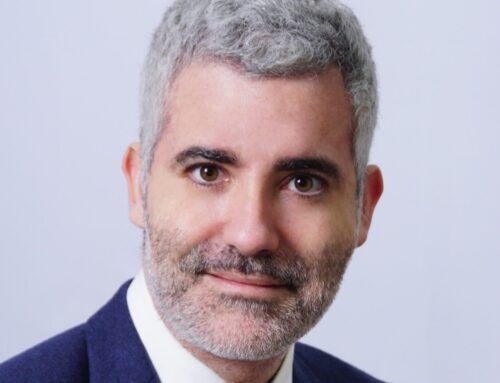
On 1 January 2025, Poland took over the rotating six-month Presidency of the Council of the European Union. This comes at a time when both Poland and the European Union are in the process of redefining themselves and are facing several challenges. Since the victory of the Democratic Coalition in Poland in the parliamentary elections in autumn 2023, the government has been trying to redefine a more peaceful relationship with the European institutions. The presidential elections in May 2025 will strengthen or weaken this movement. As for the European Union, it must reckon with the re-election of Donald Trump, the continuing war in Ukraine and the destabilisation of the Middle East. Faced with French and German governments in political difficulty, can Poland bring stability to the Union?
We ask Karolina Borońska-Hryniewiecka, Professor of Political Science at the University of Wrocław and Associate Research Fellow at the Université Paris 1 Panthéon-Sorbonne.
Q1. Donald Tusk’s arrival in power in autumn 2023 was greeted with joy and relief in several European capitals and seen as a sign of a significant improvement in Warsaw’s relations with Brussels. Just over a year later, where do things stand? Have the European institutions, and particularly the Commission, lifted all fears about the country?
Karolina Borońska-Hryniewiecka (K. B.-H.): After 8 years of PiS rule, whose EU policy was marked by conflicts with Brussels and a clearly defensive attitude towards most EU initiatives, the arrival of a liberal and pro-EU government led by the former European Council President was indeed taken with great relief around the EU.
Yet, I think that many of those who had expected a qualitatively different, pro-active and constructive approach to EU affairs from the new Polish government might feel somehow disappointed today. While the roadmap for the restoration of the rule of law was well received in Brussels, resulting in unlocking funds for Poland from the Recovery and Resilience Facility (RRF), the process is slow and constrained by political factors such as president Duda’s veto power.
More concerning for EU experts is the Polish government’s approach to the topic of the EU’s future and its institutional reforms, as well as the way of communicating EU matters to citizens. An illustration of this approach is the clear opposition of Donald Tusk’s government to take up the subject of the EU’s institutional reforms, including treaty reforms, at a time when the Union must undertake decisive preparations for its own enlargement.
Such an attitude of denying the subject of reforms began immediately after the new government took power in 2023 and is still continuing during the presidency; it can be explained by the upcoming presidential elections in the country in May 2025. The underlying logic explaining this strategy is the government’s desire to avoid controversy and not provoking right-wing political opponents who demonize potential treaty reforms as an attack on national sovereignty. In terms of the method of communication, in the last six months we could observe Donald Tusk’s and his team’s adoption of the right-wing rhetoric in EU topics such as securitisation of migration policy or using terms such as “defending Polish interests against Brussels” in explaining the government’s sceptical attitude to the idea of more EU integration. One can agree or disagree with this approach, but one thing is certain – Donald Tusk’s critical attitude to some of the EU’s initiatives such as the Migration Pact, parts of the Green Deal or general EU« over-regulation » are part of the newly acquired Polish government’s assertiveness and realism in EU affairs. Tusk’s latest speech at the European Parliament presenting the priorities of the Polish presidency was a very good illustration of this « realist » vision.
Tusk is surely one of the most experienced EU politicians nowadays, well trusted in many EU capitals, and one who gets a truly preferential treatment in Brussels. The latter one means that, despite sending an ambiguous message to the voters, he can get away with statements and gestures going against the EU logic of community-method. A good example of that was his announcement of the possibility to suspend asylum law with respect to illegal immigrants on the Polish eastern border as a response to hybrid threats. That controversial statement, together with his call to revise the Migration pact just before arriving to the European Council meeting in October 2024, not only didn’t meet with any criticism from the side of the Commission but was granted some sort of recognition in the Council conclusions. One cannot rule out that the whole political theatre around that summit could have been arranged between Tusk and president Ursula von der Leyen, with whom the Polish prime minister has a very strong and trusted relationship.
Q2. How are we to understand Poland’s determination to place ‘security in all its possible dimensions’ (in the words of Mrs Agnieszka Bartol, Poland’s Permanent Representative to the EU) at the heart of its Presidency? Is this inevitably motivated by the context of war and foreign interference on the continent, or does it reflect a deeper aspiration on Poland’s part?
K. B.-H. : I think both – very much in line with the aforementioned Polish «realist » approach to EU affairs. On the one hand, the Polish EU presidency is taking place in a very complex geopolitical context with overlapping security concerns. Difficult and decisive months of the war in Ukraine, increasing Russian influence and disinformation activities in the EU and aspiring countries like Georgia or Moldova, unpredictability of Donald Trump’s US, snap elections in Germany or the urgent need to boost EU’s competitiveness- are just some of the strategic challenges to be met. For this reason, the priority of the Polish Presidency is making decisive progress in several interconnected security dimensions, most importantly military, economic, energy and information. The first one requires increasing EU military readiness via higher military spending and a stronger defense industry. This is closely related to ensuring EU external border security and addressing the challenge of irregular migration. As regards economic and energy security, there are three main priorities for the presidency: decreasing administrative burdens and over-regulation, especially for small and medium enterprises: restoring a levelplaying field for EU industry in the face of protectionist practices by global competitors and ensuring that citizens and businesses have access to energy at affordable prices. With respect to disinformation, Poland wants to create a European Disinformation Resilience Council (EDRC), similar to that being currently established by the Polish Ministry of Foreign Affairs. All that is viewed as elements necessary to decrease the threat of populist electoral wins.
To sum up, security is a topic which unifies parties across the board. It is really impossible to say « no » to boosting the EU’s multidimensional security. And it is also a very good way to avoid controversial topics and dossiers such as the aforementioned EU institutional reform or even the multiannual financial framework, which will be dealt with by the next Danish Presidency.
Q3. Poland has high ambitions for European defence, particularly as regards the identification of Important Projects of Common European Interest (IPCEI) within the framework of the future European Defence Industry Programme (EPID), but also, it seems, in terms of funding. What progress do you expect to make on this major issue, and how do you imagine the Americans will react?
K. B.-H. : The new Polish government strongly supports the idea of creating joint European funds for financing defense and is in the vanguard of deepening cooperation in this area. Warsaw backs proposals advocating either joint borrowing or at least joint loan guarantees which could be undertaken by a coalition of the willing member states. Polish efforts and lobbying to increase individual as well as joint EU security spending is warranted as Poland is the top NATO defense spender (4.1% of its GDP). Warsaw is therefore a credible partner for Donald Trump, who expects Europe to strengthen its own security capacities.
At the same time, unlike the former PiS government, the current administration rejects the false dichotomy, or contradiction, between the cooperation within NATO and strengthening of European defence capacities. These two pillars are complementary and have to act in synergy. While Poland very much recognizes the importance of relations with the USA, Donald Tusk emphasizes that Europe must “awaken its ambitions and become autonomous”. In this respect, the two Donalds (Tusk and Trump) are on the same page. This does not stand in conflict with the fact that Poland’s security foundations have always been based on NATO membership and leading US engagement in Europe. It is therefore key for Poland to also continue developing military cooperation with US.
Q4. Warsaw stands out in the Ukrainian dossier as both a strong and long-standing supporter of Kyiv in the face of Russian aggression and, at the same time, as a country concerned about the generosity of trade measures granted by the EU to Ukraine, which are due to be renegotiated in June. How can we qualitatively envisage the way in which Poland will coordinate European positions vis-à-vis Ukraine, notably in a possible peace plan pushed by the United States?
K. B.-H. : Indeed, the established agricultural trade measures are set to expire in June 2025 which will entail further negotiations between the EU and Ukraine in the nearest future. It is expected that Poland will inevitably play a significant role in these talks. In a broader picture, the necessary integration of Ukraine’s economy into the European market will remain a key challenge for Poland in the context of EU enlargement – of which Poland is a vocal supporter. Poland’s aim in this context is to open the first negotiation cluster with Ukraine entitled “Fundamental Issues”, achieve support of EU member states for the full usage of the Russian frozen assets to support Ukraine, as well as to tighten and broaden sanctions on Russia and Belarus. Economic issues will however require pragmatism and finding the right balance between openness towards war-torn Ukraine and the protection of national interests of the EU 27. It will surely not be easy taking into account the previous tensions as well as the active Russian disinformation.
As regards the potential peace deal, Polish authorities are very apprehensive both about Trump’s promises in this regard, but also about sending troops to Ukraine to stabilise a possible ceasefire agreement. There is one sure thing about the Polish position which is being reiterated by the ruling coalition: “Nothing about Ukraine without Ukraine”. Donald Tusk has also emphasized that while he would like peace, “it must be a just peace, respecting the territorial integrity of Ukraine”. At the same time, in the Polish view, the only credible security guarantee for Ukraine is joining NATO and it cannot be ensured by mere political declaration.
What is also very important for Poland in this context is to make sure that if the end of war is declared and sanctions are lifted, Russia will not be left on its own and start re-arming itself. Poland will always reiterate the fact of which not everybody in Western Europe has been convinced – that Putin cannot be trusted at all.
Q5. The Polish Presidency, like others before or after it, will be marked by national elections, in this case the presidential election, in May. This election is crucial for the restoration of the rule of law in a country where it has been severely undermined during the eight years of PiS rule (2015-2023). What are the chances of the candidate allied to Donald Tusk, Rafal Trzaskowski? More generally, how strong are the parties opposed to PiS?
K. B.-H. : I believe it will be a very even play between the two main candidates. Latest surveys on the first round of the presidential elections in May reveal a shrinking margin of difference (4-7%) in terms of support for Rafał Trzaskowski, the current mayor of Warsaw from Koalicja Obywatelska (KO), who can count on around 36% of votes, and Karol Nawrocki supported by PiS, who is supported by around 30% of respondents. While in four different December 2024 polls, Trzaskowski’s advantage over Nawrocki was over 10 percentage points, in three January polls it was only slightly over 5 percentage points. The third place is taken by Sławomir Mentzen from the far-right Konfederacja, whose support is also steadily growing currently, oscillating between 10 and 15%.
While the right-wing populists are gaining support, the left is lagging behind divided and with marginal support of its two main candidates – Magdalena Biejat (New Left) Adrian Zandberg (Razem) both below 5%. The external circumstances of Trump’s victory, potential shift to the right in Germany as well as the negative implications of Meta’s policy changes on the fight with disinformation in social media are not helping the progressive candidates.
Interview conducted on January 29th, 2025





